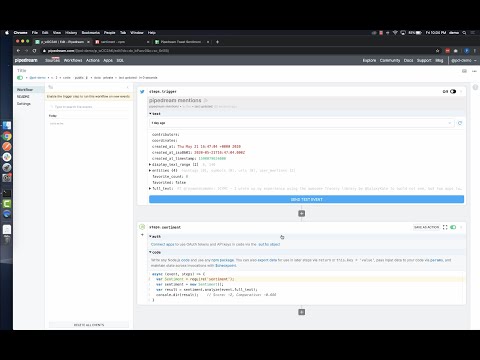What do you want to automate
with Google Sheets and ImageKit.io?
Prompt, edit and deploy AI agents that connect to Google Sheets, ImageKit.io and 3,000+ other apps in seconds.
Trusted by 1,000,000+ developers from startups to Fortune 500 companies
Popular Ways to Connect Google Sheets with ImageKit.io#
Popular Google Sheets and ImageKit.io Triggers#
Emit new event each time a comment is added to a spreadsheet.
Emit new event each time a row or rows are added to the bottom of a spreadsheet.
Emit new event each time a row or rows are added to the bottom of a spreadsheet.
Emit new event each time a row or cell is updated in a spreadsheet.
Popular Google Sheets and ImageKit.io Actions#
Add a single row of data to Google Sheets. Optionally insert the row at a specific index (e.g., row 2 to insert after headers, shifting existing data down). See the documentation
Add multiple rows of data to a Google Sheet. See the documentation
List all the uploaded files and folders in your ImageKit.io media library. See the documentation
Get all values or values from a range of cells using A1 notation. See the documentation
Overview of Google Sheets#
The Google Sheets API allows for the creation, reading, updating, and deletion of data within Google Sheets, enabling a robust platform for spreadsheet management and data manipulation. Through Pipedream, you can craft serverless workflows that respond to various triggers, such as webhook events, emails, or scheduled times, to interact with Google Sheets. This synergy can automate reporting, synchronize data across applications, manage inventory, track leads in a CRM, or even conduct survey analysis by updating and retrieving sheet data on the fly.
Connect Google Sheets#
import { axios } from "@pipedream/platform"
export default defineComponent({
props: {
google_sheets: {
type: "app",
app: "google_sheets",
}
},
async run({steps, $}) {
return await axios($, {
url: `https://www.googleapis.com/oauth2/v1/userinfo`,
headers: {
Authorization: `Bearer ${this.google_sheets.$auth.oauth_access_token}`,
},
})
},
})
Overview of ImageKit.io#
ImageKit.io API lets you manage, optimize, and deliver images dynamically for your web applications. On Pipedream, you can integrate this API to construct serverless workflows that automate your image operations and connect with other services. You can upload images from various sources, apply real-time transformations, and track media assets without managing infrastructure.
Connect ImageKit.io#
import { axios } from "@pipedream/platform"
export default defineComponent({
props: {
imagekit_io: {
type: "app",
app: "imagekit_io",
}
},
async run({steps, $}) {
return await axios($, {
url: `https://api.imagekit.io/v1/files`,
auth: {
username: `${this.imagekit_io.$auth.private_key}`,
password: ``,
},
})
},
})
Related Videos#



Community Posts#


